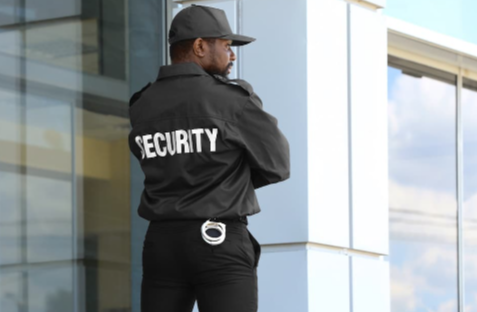Understanding the Role of Unarmed Security Guards in Protecting Your Business

In an increasingly volatile world, the security of businesses has become a paramount concern. While technology plays a significant role in safeguarding establishments, the human touch remains irreplaceable. Unarmed security guards serve as the frontline defense, providing a tangible sense of security and deterring potential threats. This article delves into the multifaceted role of unarmed security guards, exploring their significance, responsibilities, and the impact they have on safeguarding businesses.
Introduction to Unarmed Security Guards
Unarmed security guards are individuals employed to safeguard properties, assets, and people without the use of firearms. VP Security Guards fulfill a vital function in upholding safety and organization across a range of settings, such as businesses, residential areas, schools, and public spaces. Unlike armed counterparts, their core duties emphasize prevention, observation, and defusing potential conflicts rather than confrontation.
The Significance of Unarmed Security Guards
Visible Deterrent: The presence of unarmed security guards acts as a visible deterrent to potential criminals. Their conspicuous presence signals that the premises are monitored, dissuading individuals with malicious intent from attempting illegal activities.
Immediate Response: Unarmed security guards are trained to respond promptly to emergencies such as disturbances, medical crises, or security breaches. Their ability to assess situations quickly and take appropriate action can prevent minor incidents from escalating into major crises.
Customer Service: Beyond security, unarmed guards often serve as the first point of contact for visitors, clients, and employees. Their courteous demeanor and helpfulness contribute to a positive customer experience, enhancing the reputation of the business.
Surveillance and Monitoring: Unarmed guards are responsible for monitoring surveillance systems, patrolling premises, and identifying suspicious activities. Their vigilance helps in the early detection of security threats, enabling timely intervention and mitigation.
Conflict Resolution: One of the primary roles of unarmed security guards is to de-escalate conflicts and diffuse tense situations peacefully. Through effective communication and conflict resolution skills, they can resolve disputes before they escalate into violence, minimizing the risk of harm to individuals and property.
Read more Customizing Your Furniture with Metal Legs for Tables
Responsibilities of Unarmed Security Guards
Patrolling: Unarmed security guards conduct regular patrols of the premises, both indoors and outdoors, to deter unauthorized access and detect security breaches.
Access Control: They regulate entry and exit points, verify credentials, and ensure that only authorized individuals gain access to restricted areas.
Emergency Response: Unarmed guards are trained to respond swiftly to emergencies such as fires, medical emergencies, or criminal incidents. They coordinate with emergency services and implement evacuation procedures when necessary.
Report Writing: Detailed and accurate reporting is an essential aspect of the job. Unarmed guards document incidents, observations, and any unusual activities in written reports, providing valuable information for future security assessments.
Communication: Effective communication is key to the role of unarmed security guards. They must communicate clearly and assertively with individuals on the premises, including employees, visitors, and potential intruders, to enforce security protocols and resolve conflicts peacefully.
Training and Qualifications
While unarmed security guards do not carry firearms, they undergo rigorous training to equip them with the necessary skills and knowledge to perform their duties effectively. Training programs cover a wide range of topics, including:
- Security protocols and procedures
- Emergency response techniques
- Conflict resolution and de-escalation
- First aid and CPR
- Legal aspects of security
- Surveillance and monitoring techniques
Challenges Faced by Unarmed Security Guards
Despite their importance, unarmed security guards face several challenges in the execution of their duties:
Limited Authority: Unlike law enforcement officers, unarmed guards have limited authority to detain individuals or enforce laws. They must rely on persuasion and communication skills to maintain order and security.
Risk of Confrontation: While unarmed guards are trained to de-escalate conflicts, they may still encounter hostile individuals or volatile situations that pose a risk to their safety.
Vulnerability to Physical Threats: Without firearms or protective gear, unarmed guards are more vulnerable to physical threats from armed intruders or aggressive individuals.
Monotony and Vigilance Fatigue: The nature of the job, which often involves long hours of surveillance and patrols, can lead to monotony and vigilance fatigue, reducing alertness and responsiveness.
Conclusion
In conclusion, unarmed security guards play a vital role in protecting businesses and ensuring the safety of employees, customers, and assets. Their visible presence, combined with their training in conflict resolution, surveillance, and emergency response, makes them indispensable assets for businesses seeking to mitigate security risks. While they face challenges in the execution of their duties, unarmed guards continue to serve as the frontline defense against threats, embodying the principle that human vigilance remains an essential component of comprehensive security measures. By understanding and appreciating the role of unarmed security guards, businesses can enhance their security posture and foster a safer environment for all stakeholders.






